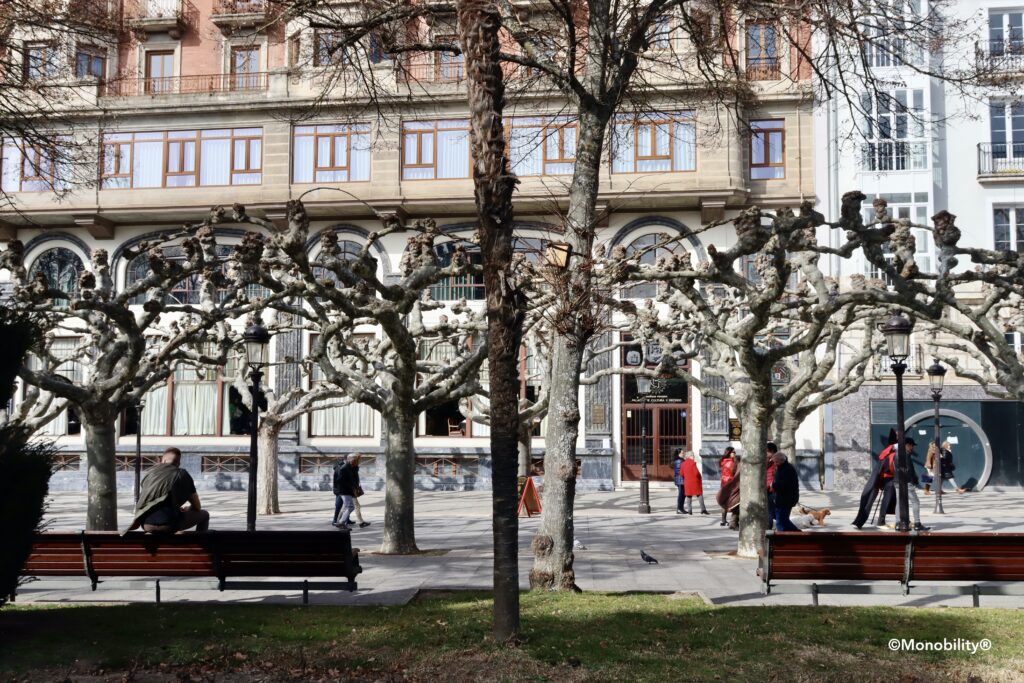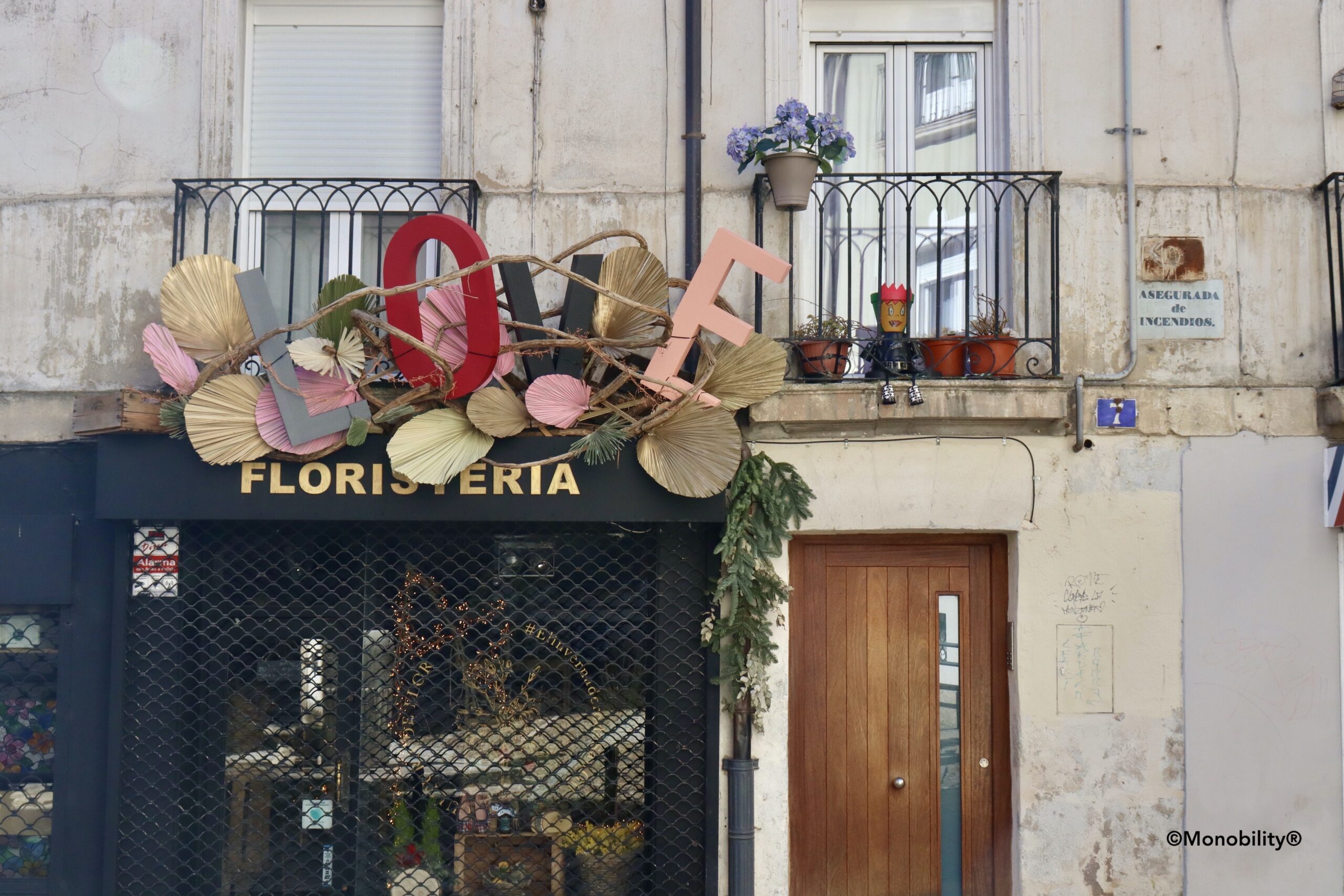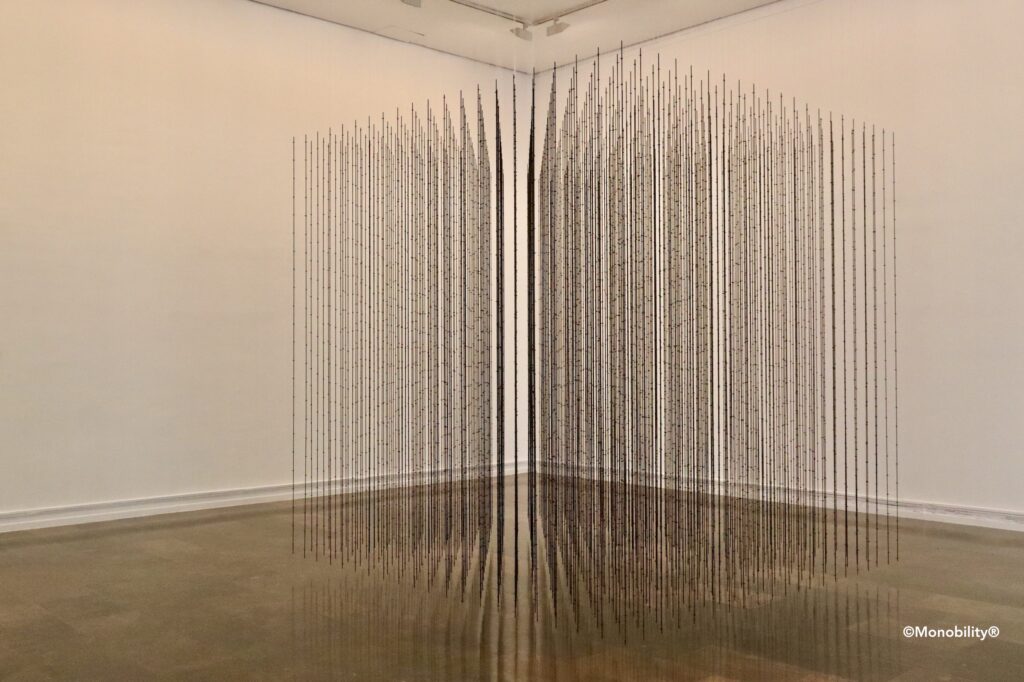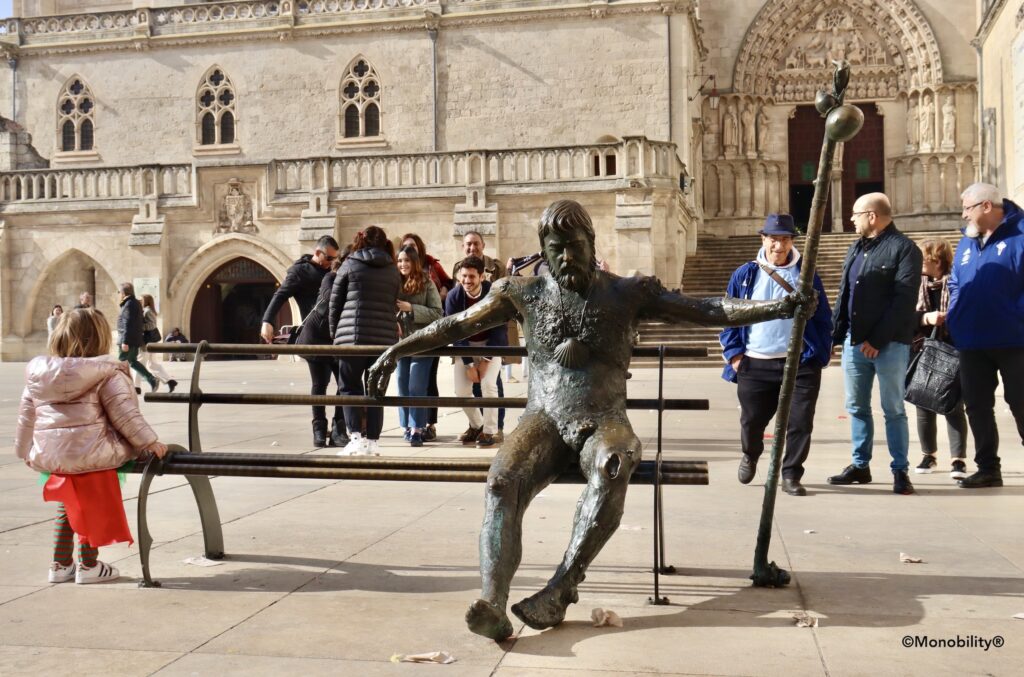So far, I didn’t know how well our members speak Korean. In fact, I was curious about that all along. Now I know that many of you can speak (write) Korean very well already. Facebook’s new community chat function has just helped me find it out. ^^
Thus, I can comfortably discuss how to form a Korean relative clause in the past tense, modifying a subsequent noun. From many articles I posted so far, you know that -는 is added to a verb stem to work like a relative pronoun in English to form a relative clause in the present tense:
- 내가 사랑하는 사람 Someone that I love [ 사랑하다 to love; 내가 사랑하-는 that/whom/which I love ]
To form a similar relative clause in the simple past tense, Koreans add -ㄴ/은 to the verb stem. -ㄴ is used for stems ending with a vowel, -은 for stems ending with a consonant.
- 내가 사랑한 사람 Someone that I loved [ 사랑하 -ㄴ => 사랑한 ]
- 잃어버린 시간을 찾아서 In Search of Lost Time [ À la recherche du temps perduby Marcel Proust; 잃어버리다 to lose => 잃어버리-ㄴ => 잃어버린 that (I) lost; 시간 time; 찾다 to find; 찾아서 in order to find; the translated title literally means “In order to find the time that I lost ]
- 내가 먹은 치즈가 상했어 The cheeze I ate was spoiled [ 먹다 to eat; 먹-은 which (I) ate ]
Now, -던 is similar to the above –ㄴ/은 in that it forms a relative clause in the past tense. But in addition, -던 indicates that the action of the verb continued for a duration in the past, but now it does not anymore. Sounds familiar? ^^ It is similar to the Imperfect past tense in Latin languages – Italian, French, Spanish, Portuguese, etc., and can be often translated as “used to” in English.
- 내가 사랑하던 사람 Someone that I used to love [ verb stem 사랑하-던 whom/which/that (I) used to love ]
Furthermore, -던 may be added to the past tense verb stem to form an ending -았던/-었던 to clearly indicate that the action was an experience that happened in the past and it is ended now, which is similar to one of the usages of the present perfect tense of English verbs, i.e., describing a past experience.
- 내가 사랑했던 사람 Someone that I have (once) loved
Koreans also say -았었던/-었었던 to emphatically state that the action already happened in the past and that it is less relevant to the present situation. In some cases, this ending may be close to the English past perfect tense, although Koreans do not usually distinguish two different time frames of the past as English grammar requires it for the use of the past perfect tense.
- 내가 널 만나기 전에 사랑했었던 사람 Someone that I had loved before I met you [ here, 사랑했었던 can be replaced with 사랑했던 without a grammatical error ]
For -았던/-었던 and -았었던/-었었던, the rule of vowel harmony applies to the choice of 았 vs. 었, which I briefly explained before.
Please compare all five tenses I described above. What do you see?
- 내가 사랑하는 사람 Someone that I love
- 내가 사랑한 사람 Someone that I loved
- 내가 사랑하던 사람 Someone that I used to love
- 내가 사랑했던 사람 Someone that I have loved
- 내가 사랑했었던 사람 Someone that I had loved
The last three clauses all end with -던. This is the Korean signature of expressing a past experience in a relative clause that modifies the following noun. And the good news is, native Korean speakers do not distinguish various past tenses so meticulously as in many European languages. Especially in spoken colloquial Korean, those last three sentences are used interchangeably with no problem. A simple addition of -던 to a verb stem works in most cases. Isn’t that nice to know? Life is so easy when you speak Korean! ^^
In 사랑이 지나가면 (When Love Passes By) below, written by the legendary composer 이영훈 and sung by 이문세, you might be able to find a perfect example of -던 at one place in the lyrics. The song sings of a delicate sentiment of an ended love in one of the simplest and the most minimalist lyrics in a very Korean way, like a typical undecorated, never flamboyant, but clean, almost transparent, white porcelain vase from the Chosun dynasty.
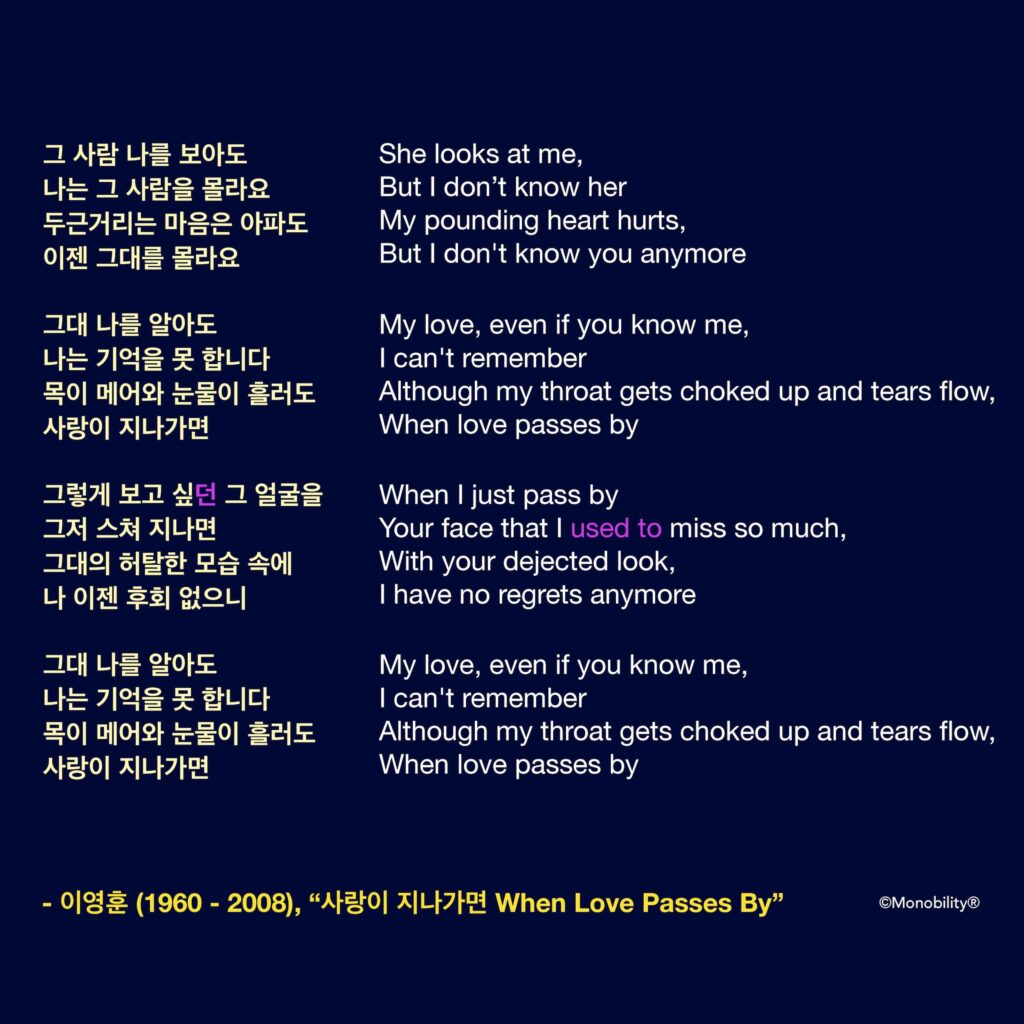
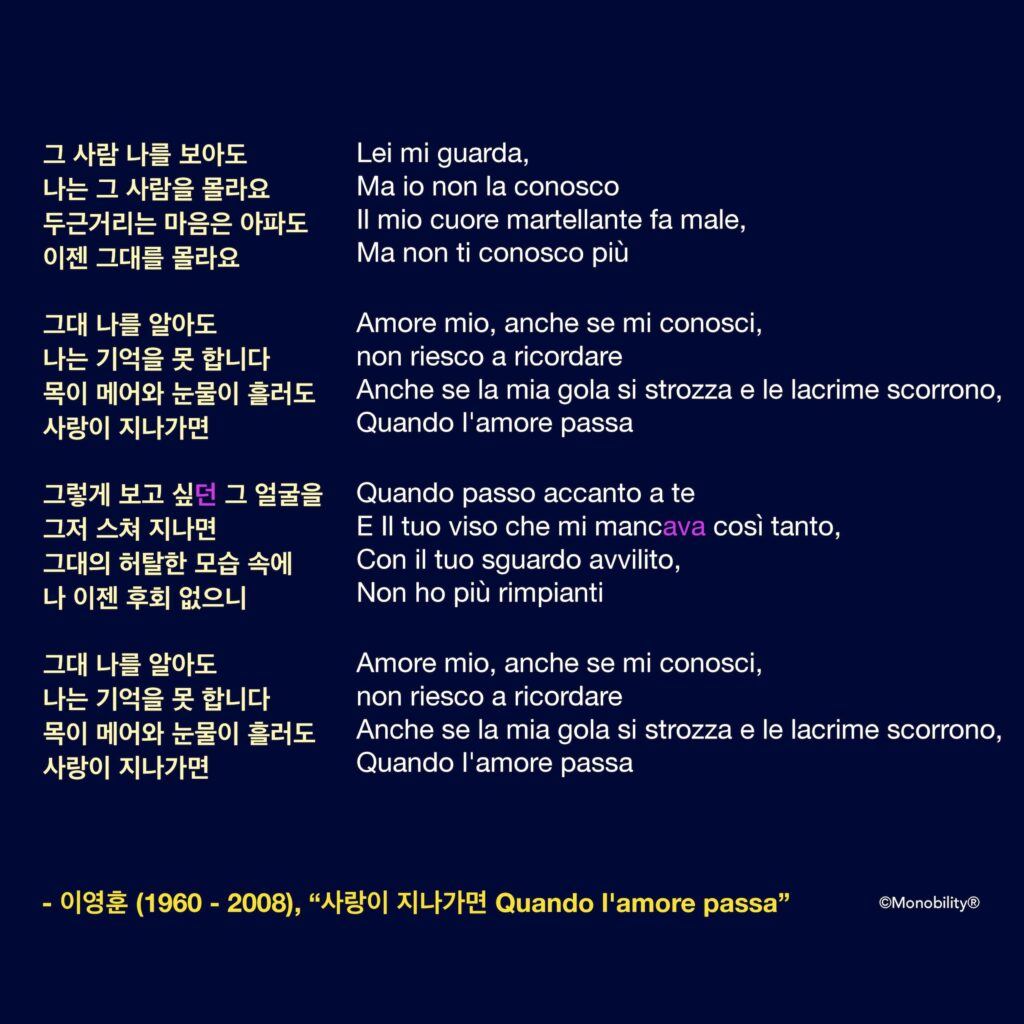
How would you compare this Korean lyricism and Barbra Streisand’s “Someone that I Used to Love” which expresses a similar theme and sentiment in a different but equally exquisite way?
Join Monobility® Group for much more:
